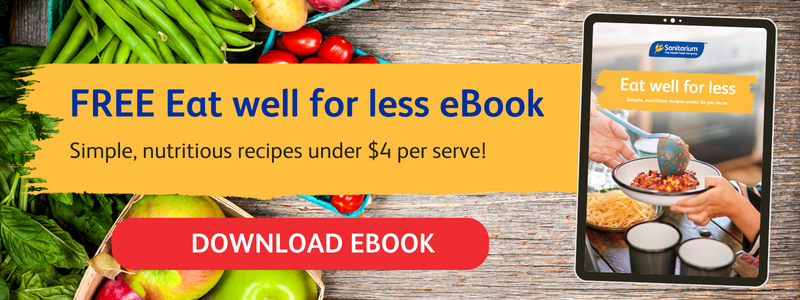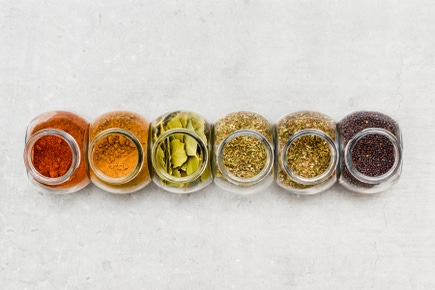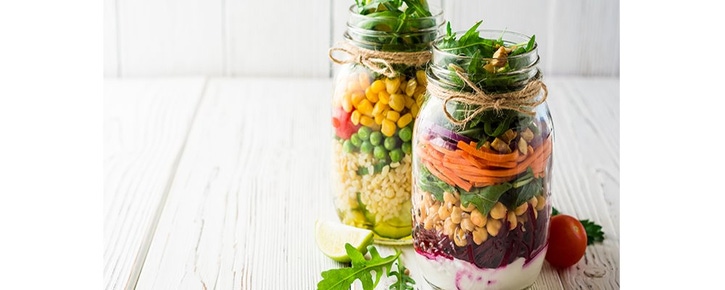
5 budget-friendly foods for a healthier gut
These days you can’t walk down a health food or vitamins aisle without over-priced products shouting gut health claims at you. And while we agree, looking after your gut is one of the best things you can do for your physical and mental health, it may be easier, and cheaper than you think to get your gut health back on track.
Your gut is a lively hub for trillions of microorganisms known as gut flora or microbiota, essential for breaking down the foods you eat. For a healthy gut, you need a diverse range of gut microbiota and they need to be fed, with the right kinds of foods - prebiotics.
Nurturing your gut can help you absorb more of the good stuff from your food, which helps to support your immunity, regulate your digestion and even has a positive impact on your mood.
We asked our Sanitarium dietitians to share their top 5 bang-for-your-buck, gut-friendly foods. Their answers may surprise you and could already be in your fridge or pantry.
1. Frozen veggies
Research shows that eating 30 plant foods a week can support gut health by encouraging the growth of different species of ‘good’ bacteria needed to keep our gut and overall health on track. Eating frozen vegetables is a cost-effective and convenient way to achieve this goal.
Versatile, frozen veggies can be added to a variety of dishes including Bolognese, stews, stir-fry’s or steamed as a side. Their long shelf life in the freezer lowers the risk of your vegetables going off, minimising waste.
Nutrient-wise, they offer similar or even better nutrient quality than fresh veggies. Frozen veggies are frozen at their peak freshness and ripeness, preserving all their nutrients while fresh produce may lose some nutrient quality when being transported or sitting on the supermarket shelves.
2. Yoghurt
Yoghurt is an affordable gut health ally that can be eaten as a snack, added to your breakfast and is great with fresh fruit to help satisfy sweet cravings.
Yoghurts are made using live cultures, which not only transform milk into the delicious, creamy food we know and love, but can also help with digestion of lactose. Cultured dairy products such as yoghurt are also associated with reduced weight, type 2 diabetes and heart disease.
Some yoghurts also contain probiotics, like certain strains of lactobacillus or bifidobacteria. Probiotics are live microorganisms that, when consumed in adequate amounts, provide a health benefit. Probiotics can support health in different ways from helping your immune system function properly, aiding digestion by breaking down some of the food we can’t digest, and even keeping harmful microorganisms in check.
When choosing yoghurts, opt for a plain or Greek yoghurt, and add your favourite fruit to it for more flavour. And if you are wanting that gut loving hit, look for ones that contain probiotics.
3. Wholegrain bread and breakfast cereals
Fibre is super important for gut health, in fact it’s linked to several benefits including supporting regular bowel movements, microbiota diversity and an overall healthy digestive system. It is recommended that women aim for at least 25g of fibre per day, and men aim for at least 30g per day. Adding foods like wholegrain breads and breakfast cereals to your diet is an easy and budget-friendly way to help hit your daily fibre intake.
TIP: When choosing breads and breakfast cereals look for the words “whole grain” or “wholemeal” at the top of the ingredient list. This will help you get the most nutritional benefit out of these foods.
4. Canned beans and legumes
Canned beans and legumes are not only cheap, but also last for a long time in your pantry. There’s a huge variety to choose from including chickpeas, cannellini beans, lentils and red kidney beans. They are great flavourful additions to simple dishes like tacos, curries or Bolognaise sauce and a great meat substitute thanks to their protein content. Beyond their flavour, canned beans and legumes are loaded with dietary fibre that helps to keep you full for longer and feeds your gut bacteria, making them a tasty addition to your cooking.
5. Extra virgin olive oil
Research has shown that the polyphenols in extra virgin olive oil can act as a prebiotic by encouraging the growth of good gut bacteria. It also helps reduce the growth of bad gut bacteria, leading to reduced inflammation and improved overall gut health.
In addition to frying and roasting, extra virgin olive oil can be drizzled on wholegrain bread, used as a salad dressing or on vegetables.
As beneficial as it is, stick to the recommended serving sizes included in the Australian Dietary Guidelines.
And one more – because it’s free – water!
Hydration is key to gut health because it works with fibre to keep bowel movement regular. It may also be linked to increased diversity of bacteria in the gut. The best news is that water is free, so grab your drink bottle and set yourself up for drinking an average of 6-8 cups of fluid a day – your gut will thank you.

The latest nutrition advice, plus health and wellness tips delivered to your inbox monthly


